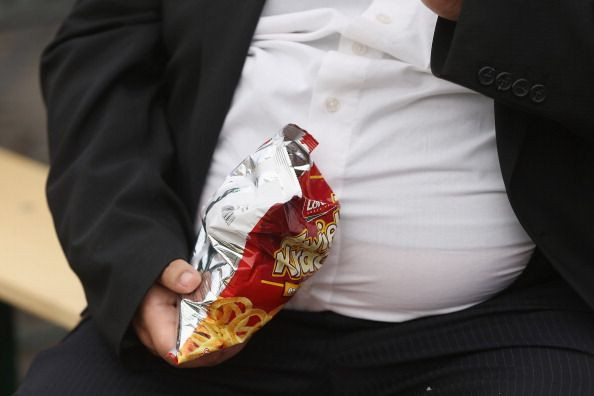Money In The Bank: Obese Men More Likely To Earn More, And Opposite Is True For Women

Think your weight has anything to do with the contents of your wallet? According to a new study conducted by the University of Otago’s Christchurch Health and Development (CHDS) in New Zealand, being obese may benefit a person’s bank account, but it depends what gender they are. For a man, being fat may be the key to a fat wallet.
For the study, researchers followed the lives of more than 1,200 children for 38 years into adolescence and adulthood to track their weight along with other factors from income to mental health. The findings revealed the greater a man’s body mass index (BMI), the more money he makes compared to his skinnier counterparts. But the opposite was true for overweight or obese women, who not only tended to make less money than thinner women, but were also more likely to be depressed.
"There was a clear relationship between larger men and larger weekly pay packets," said the study’s lead author John Horwood, the director of CHDS, in a press release. "But for men, being classified as overweight or obese according to the BMI Index did not negatively affect other outcomes measured in the study such as self-esteem or mental health."
Horwood and his team calculated that on average, men with a BMI of more than 30, which is the classification for obesity, earned $140 more a week than men with a normal one, which is between 18.5 and 24.9. The BMI measurement is a way to calculate body fat based on height, weight, and gender. Health care professionals use the scale to determine if a patient is underweight, normal, overweight, or obese, which allows them to determine treatment based on the category the patient falls into.
Not only were men making more money the higher their BMI was, but they were also mentally healthy, while women tended to be dissatisfied with their lives when they had a high BMI. Researchers plan to study the group more closely as they continue to age. It may reveal the reasons why women make less and often end up unhappy when they’re overweight or obese and why it’s the opposite for men.
"One reason could be Western society's general view that female obesity is undesirable and unattractive," Horwood said. "Another could be growing evidence to suggest women are more responsive to adversity in life than men. Not only is there more stigma attached to weight and body composition for women, but they may also be more likely to perceive being overweight or obese as a source of stress or adversity."
Source: Horwood J, et al. Christchurch Health and Development. 2015.



























